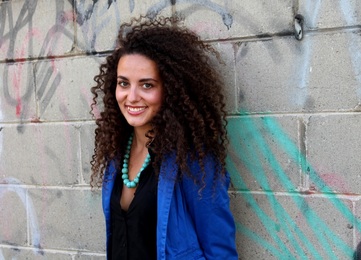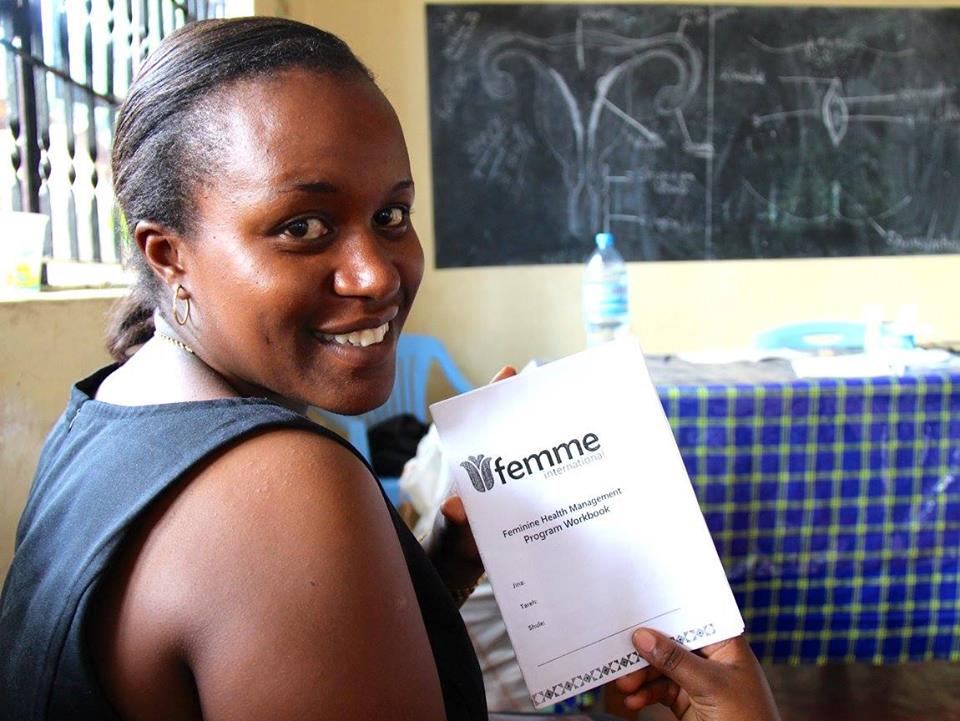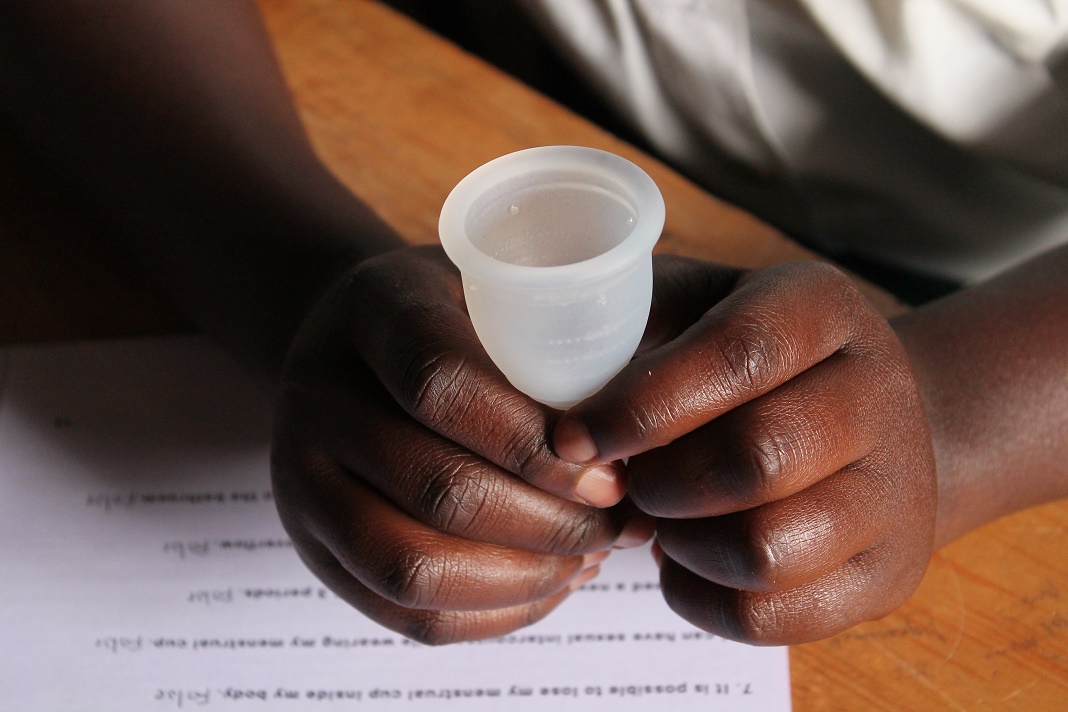“Providing menstrual cups to women in developing communities helps her stay healthy and confident. Girls reported feeling confident, free, and much more comfortable.”
Femme International was founded in 2013 by Sabrina Rubli and Ornella Marinic in order to come up with a solution to the high rates of deliberate absenteeism of teenage girls. Sabrina, Executive Director of Femme International, speaks to the IPF about how they are bringing menstrual cups to East Africa – and what this means for young women in the region.
Thanks for talking to us today. Can you tell us about Femme International and its mission?
Femme’s mission is to create a world where women and girls no longer face oppression and have the education and tools required to take advantage of every opportunity. We are working to achieve this by promoting women’s health through education, with a focus on menstrual health and hygiene.
Why are you focusing on menstrual health?
Menstruation is the number one reason why girls in developing countries miss school, or drop out altogether, and Femme was founded to create a solution to this problem.
Despite the fact that menstruation is such a huge issue, the stigma that surrounds menstruation has prevented it from being talked about, which means that very few NGOs focus on menstrual health education. As soon as we identified this gap in programming, we began to develop a program that combines education with distribution to tackle a root cause of the continuing gender disparity.
What projects do you have on the go right now?
Femme currently works in Nairobi’s Mathare slum, as well as in the rural communities in the Kilimanjaro Region of Tanzania.
Femme runs the Feminine Health Management (FHM) program with local schools and community based organisations in these communities. The FHM program takes an education-based approach to the issue and our local facilitators lead the girls through a series of workshops to discuss reproductive health, menstrual health, anatomy, and safe menstrual management.
It is our hope that, by starting this conversation, the girls will become more comfortable with their bodies, and have the information required to stay healthy – every day of the month!
The workshops create a safe space for the participants to talk frankly about their bodies, and ask the sensitive questions they may not otherwise have the opportunity to ask.
The workshop ends with the girls each receiving a Femme Kit, which is designed to contain everything a girl needs to manage her period in a safe, healthy and sustainable way. Central to the Kits are reusable menstrual management materials such as reusable pads or menstrual cups.
We’ve heard a lot about how you are providing silicone menstrual cups to developing communities. Can you tell us more about that?
Menstrual cups are made out of surgical grade silicone and are inserted into the vagina to collect, rather than absorb, menstrual fluid. When inserted correctly, the cup creates a vacuum seal and provides up to 12 hours of comfortable, leak-free protection.
Menstrual cups allow girls to attend school and not have to worry about finding a latrine to change her pad – and it helps her feel more comfortable and confident in the classroom.
It also gives her a new level of control – she changes the cup when she has the time to find a private moment. When the cup needs to be emptied, it is simply rinsed (if potable water is available), or wiped with a clean towel (provided in the Femme Kit) and then re-inserted.
At the end of her period, the cup is boiled in water for five minutes and then stored until the next month. When cared for properly, menstrual cups will last for ten years – helping her save money each month!
How much of a difference have these cups made so far?
Providing menstrual cups to women in developing communities helps her stay healthy and confident. Femme has seen a great deal of success in the past with students and teachers in East Africa, with extremely high success rates! Girls reported feeling confident, feeling free, and much more comfortable.
Teachers have told us they have seen a change in their students – they are better able to participate in the classroom and their attendance and test scores have improved!
The reason the FHM program has been able to run so successfully over the past two years is due to the focus on education – it is not enough to distribute menstrual cups. The accompanying educational workshop ensures that the girls understand how their bodies work and how to properly use the menstrual cup, as well as essential hygiene practices.
Sounds great! What’s the scale of your project?
Currently Femme has reached over 550 young women in Kenya and Tanzania, and will be expanding the program to several new communities in 2015.
For the girls that are not comfortable using a menstrual cup – either for cultural reasons, or if they are too young – Femme provides reusable pads, courtesy of AFRIpads.
In 2014, Femme introduced the Boys Health Management Program, designed to compliment the FHM program.
The BHM program teaches boys about their personal health, but also discusses gender equality, consent, and teaches them a little bit about menstruation.
It is our hope that by running these two programs simultaneously in a school we will help to create a community that empowers women and sees as many female graduates as male graduates.
What are some of the biggest challenges you’ve faced?
Working with Femme has been an incredibly rewarding – and challenging – experience.
Working in the field is always challenging, particularly when you are dealing with such a sensitive issue. We always need to be very careful to respect the culture we are working within, and not create any content that would be inappropriate.
The biggest question we get is about the question of virginity and if menstrual cups cause girls to break their hymens, as virginity is often regarded as very essential for young women. In our workshops, we teach that a girl can break her hymen in a number of different ways. Just because she has broken her hymen does not mean that she is not a virgin anymore. A girl is no longer a virgin when she has sexual intercourse for the first time. Hymens come in all different shapes and sizes and can break when inserting a menstrual cup.
Most of our girls have opted for the menstrual cup – and really enjoy using it – but our main goal is to ensure that the girls are comfortable with their choice.
That is why we provide reusable pads for the girls who prefer to not insert anything into their vagina. Thankfully, Femme has had community support at every step of the way. We are so grateful for the amazing teachers and headmasters we have worked with so far.
What a great team effort! What do you most look forward to going ahead into the new year?
I am excited about building new partnerships with schools and community groups in the Kilimanjaro Region, and reaching twice as many girls as last year!
To find out more about Femme International, visit their website, follow them on Twitter and like them on Facebook.





